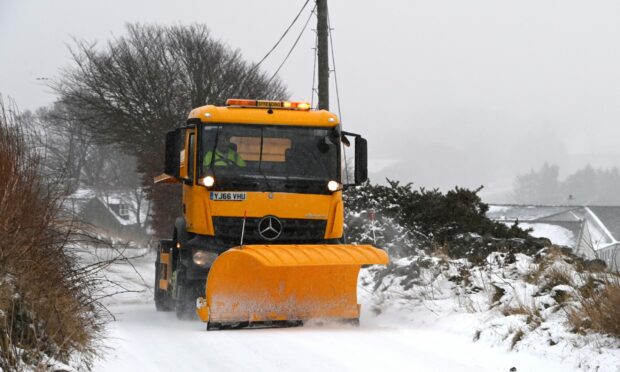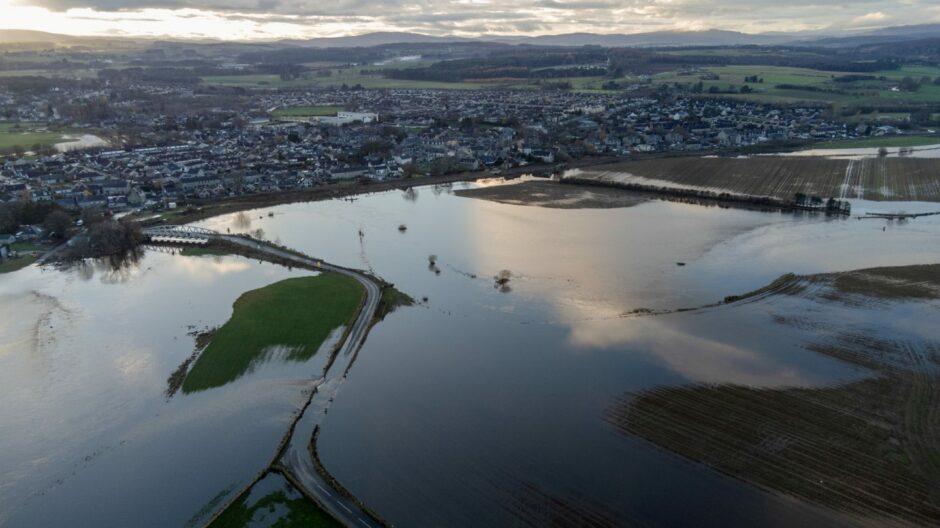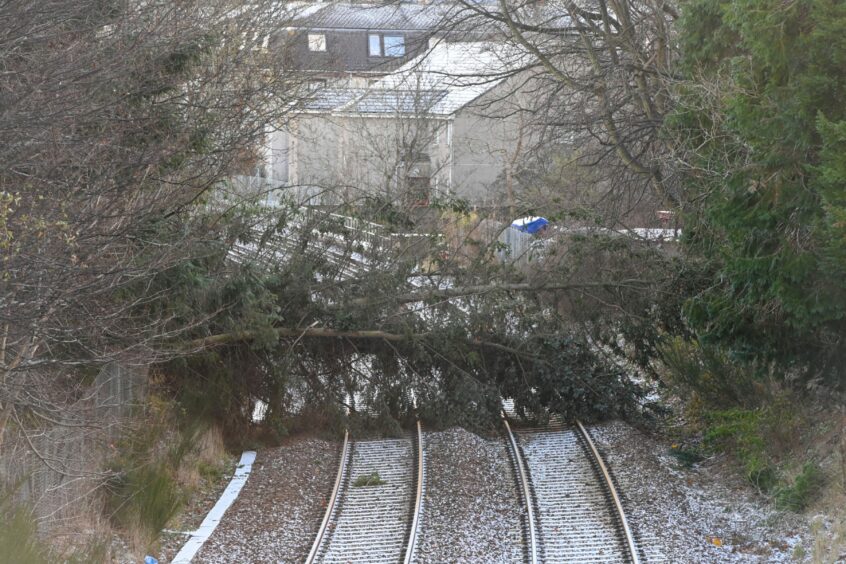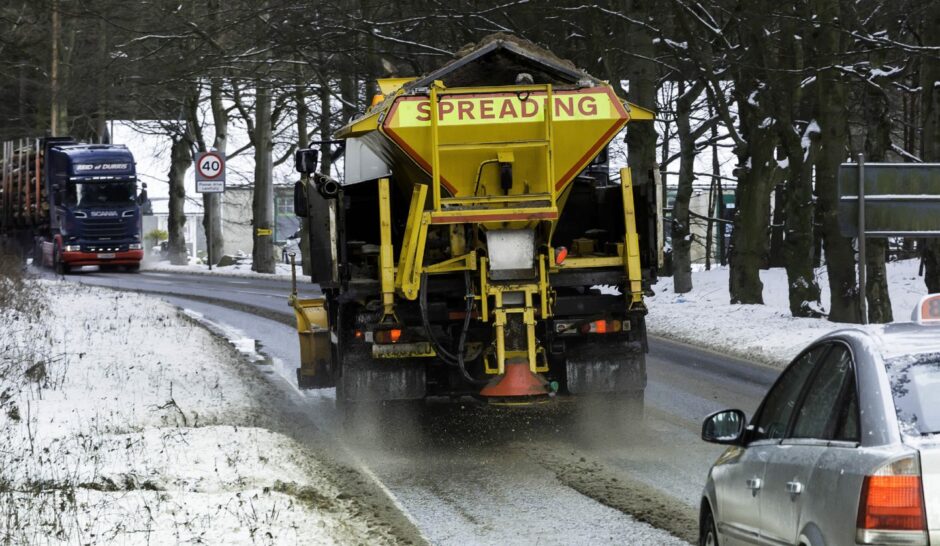With the darker nights and temperatures falling, Aberdeenshire Council teams are putting their winter operations into motion.
To help communities prepare, a leaflet and door drop are getting underway to provide guidance on steps to help get prepared and be ready for disruption.
Aberdeenshire Council said it can be simple actions, but will improve the personal or household resilience of individuals across the region.
The leaflet contains some important information, guidance and signposting to additional support, including: “You might need to be self-sufficient for 72 hours. So now is a good time to get prepared.”
First anniversary of Storm Arwen
The leaflet is broken down into the following sections: Alerts to sign up for, things to do before a storm arrives and some advice about what to do if the “lights go out”.
It has been issued to councillors, community councils and resilience groups across Aberdeenshire.
The publication comes after severe flooding took place last weekend and on the first anniversary of Storm Arwen, which knocked out power to large areas of Aberdeenshire for several days, saw one death and thousands of trees down across the region.
Aberdeenshire Council supported Scottish and Southern Energy Networks (SSEN) in locating welfare vans supplying hot food to affected communities and a humanitarian assistance centre, with welfare checks for the area’s most vulnerable residents.
As well as this, the council set up 17 welfare centres for hot food, water and power, two rest centres for overnight accommodation, with 13 Live Life Aberdeenshire facilities being opened to the public.
The publication of the resilience leaflet comes as the council’s winter roads maintenance plan kicks into action, with crews stepping up plans to keep the 3,500-mile roads network clear.
45,000 tonnes of salt used annually
Currently all of Aberdeenshire Council’s depot salt stocks are at full capacity and will continue to be restocked by suppliers throughout the winter, ensuring treatments can be actioned as necessary.
Typically, the local authority will use around 45,000 tonnes of salt annually to ensure roads and footways remain safe for all users.
The council has also been busy readying its fleet of 55 gritters, support vehicles and around 300 dedicated roads and landscape staff to ensure residents and businesses can travel and operate as freely as possible through potentially challenging conditions.
‘This strategy sets out how we collectively build resilience’
Leader of Aberdeenshire Council, Mark Findlater said: “Since those devastating storms a year ago, we have taken significant steps in developing the Aberdeenshire Community Resilience Strategy which builds on the learning and experiences of individuals, households, families and communities during the winter storms.
“This strategy sets out how we collectively build resilience in Aberdeenshire and, combined with the ongoing engagement with our communities, it will help ensure we are well placed to deal with any weather challenges thrown at us.”
‘Very well rehearsed resilience and response plans in place’
Aberdeenshire Council chief executive, Jim Savege added: “As we saw both during Storm Arwen and the recent flooding events at several locations including Ballater and Kintore, many of our communities have very well rehearsed resilience and response plans in place.
“By developing these plans in association with the council, they are ensuring their communities have a strong support mechanism to help deal with emergencies and challenging conditions and are getting the crucial message across that we must all increase our individual and household resilience and be aware of our neighbours and those around us who may need help.”





Conversation